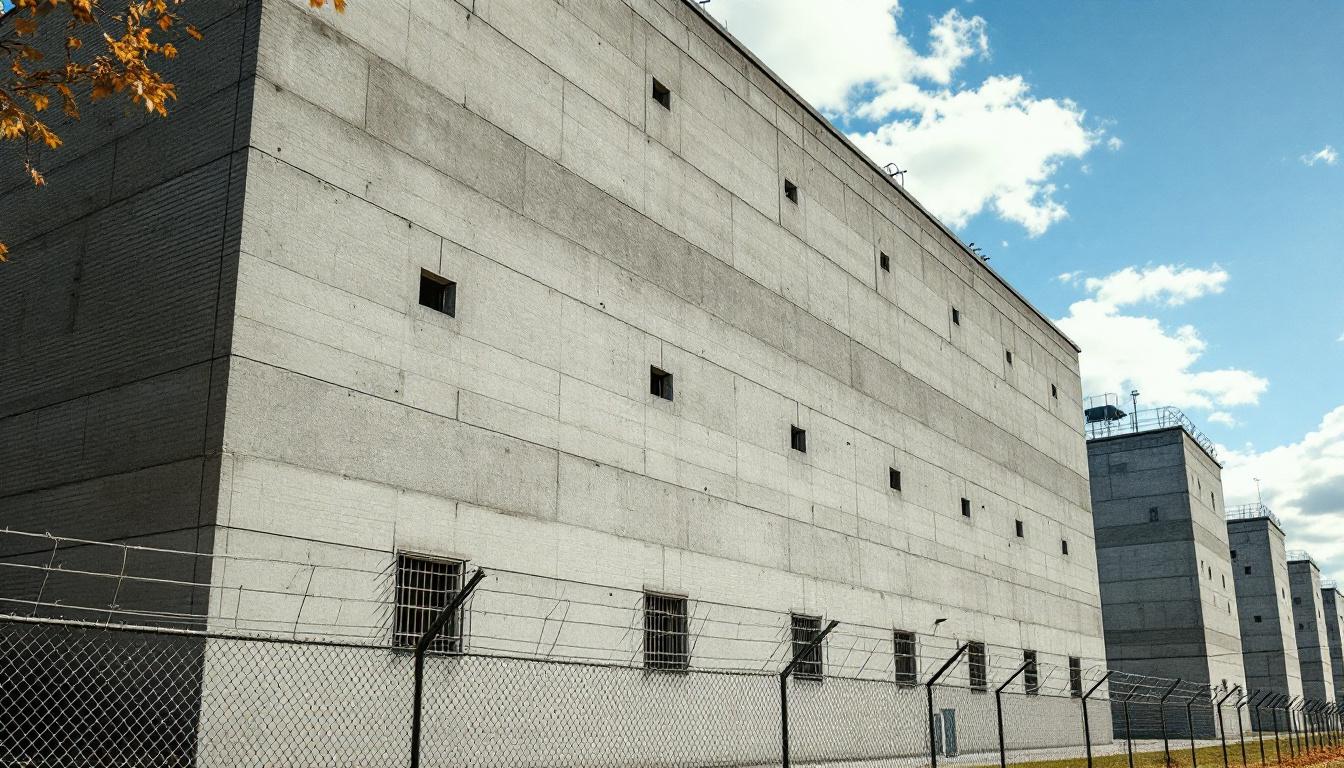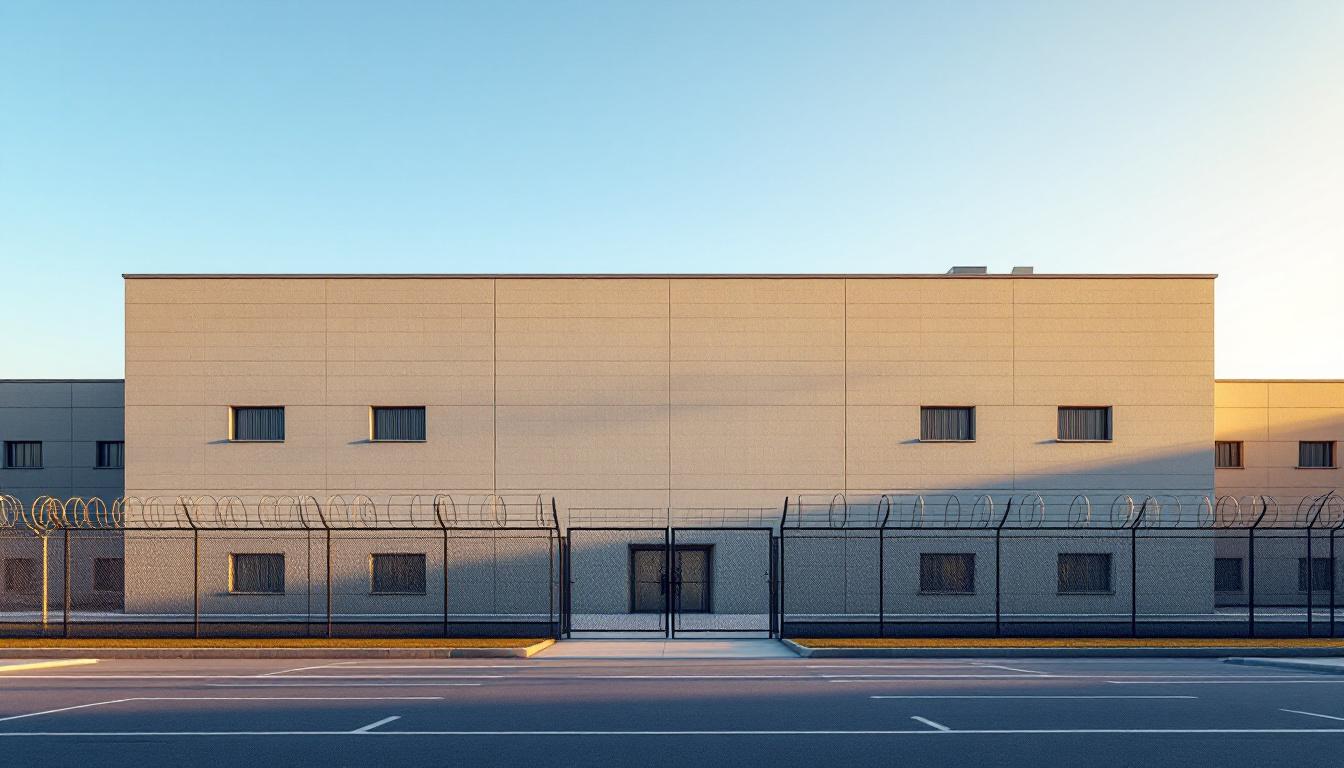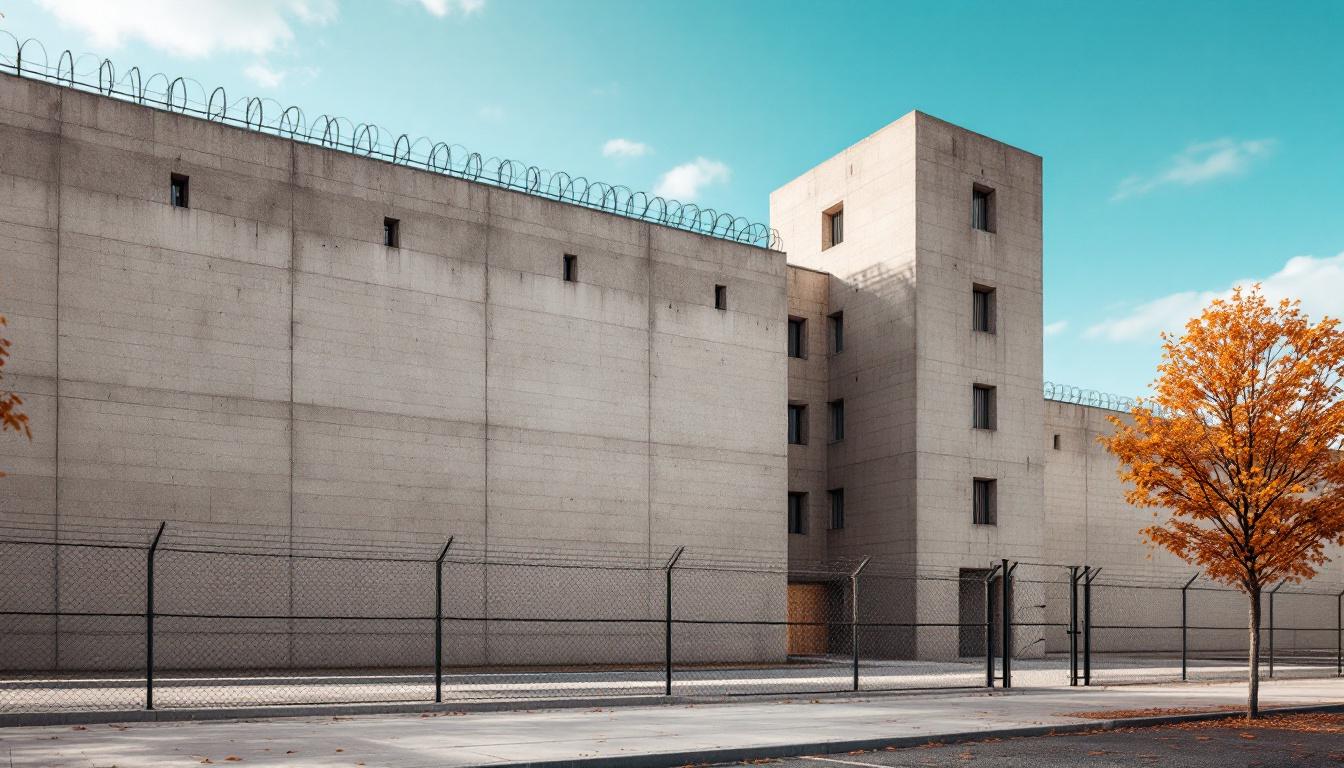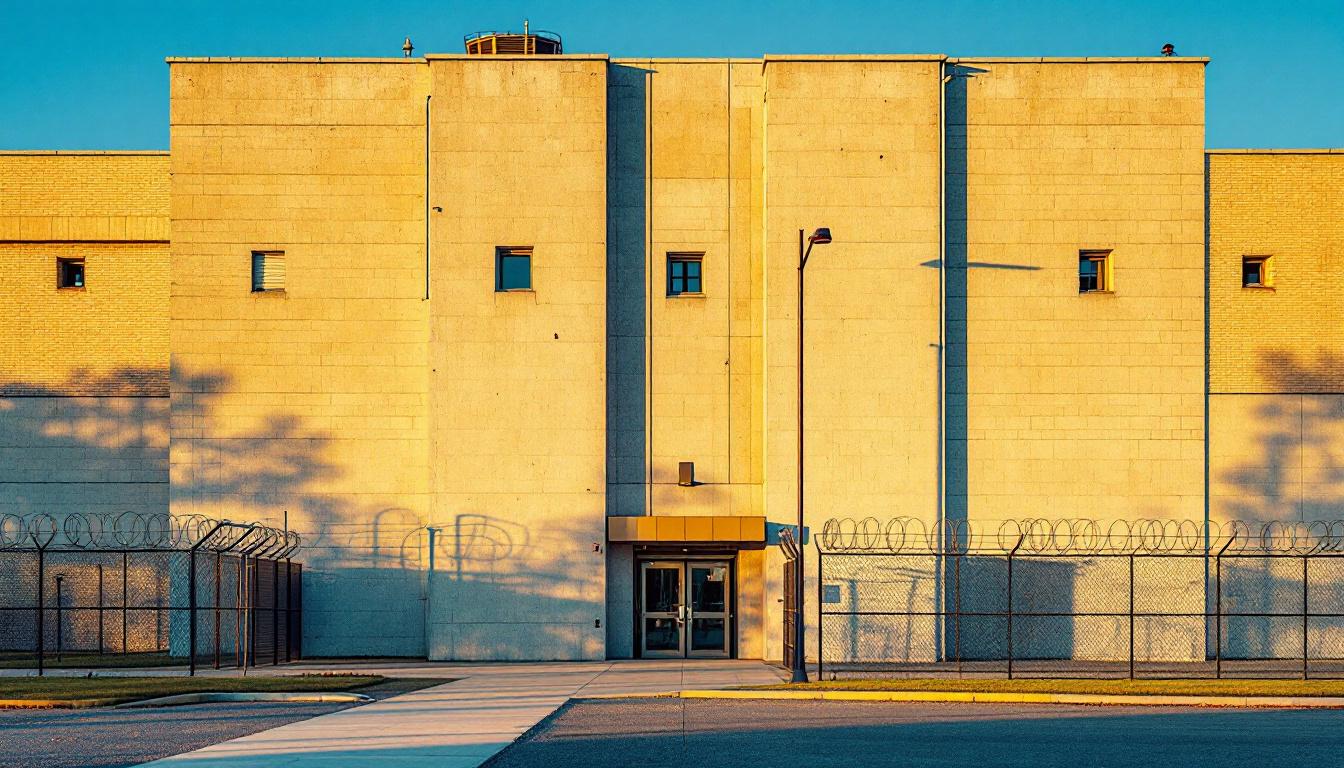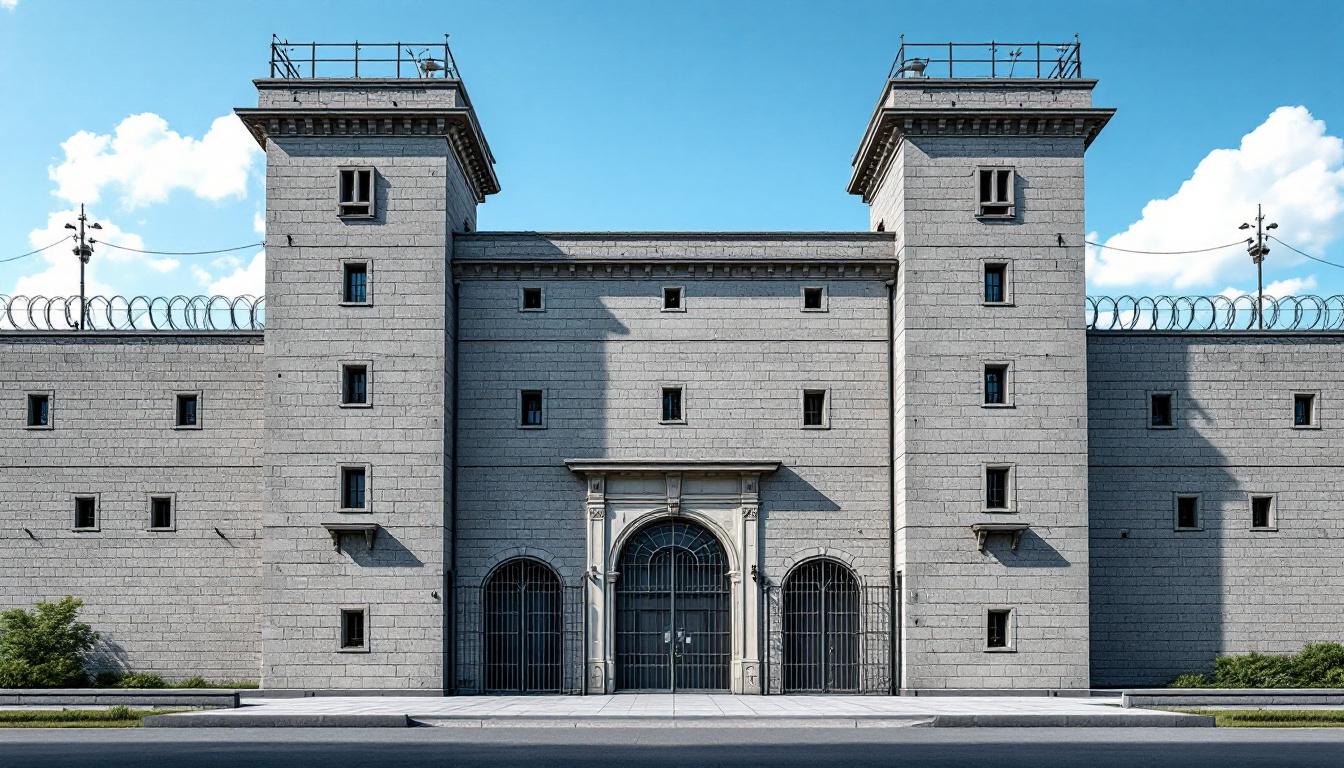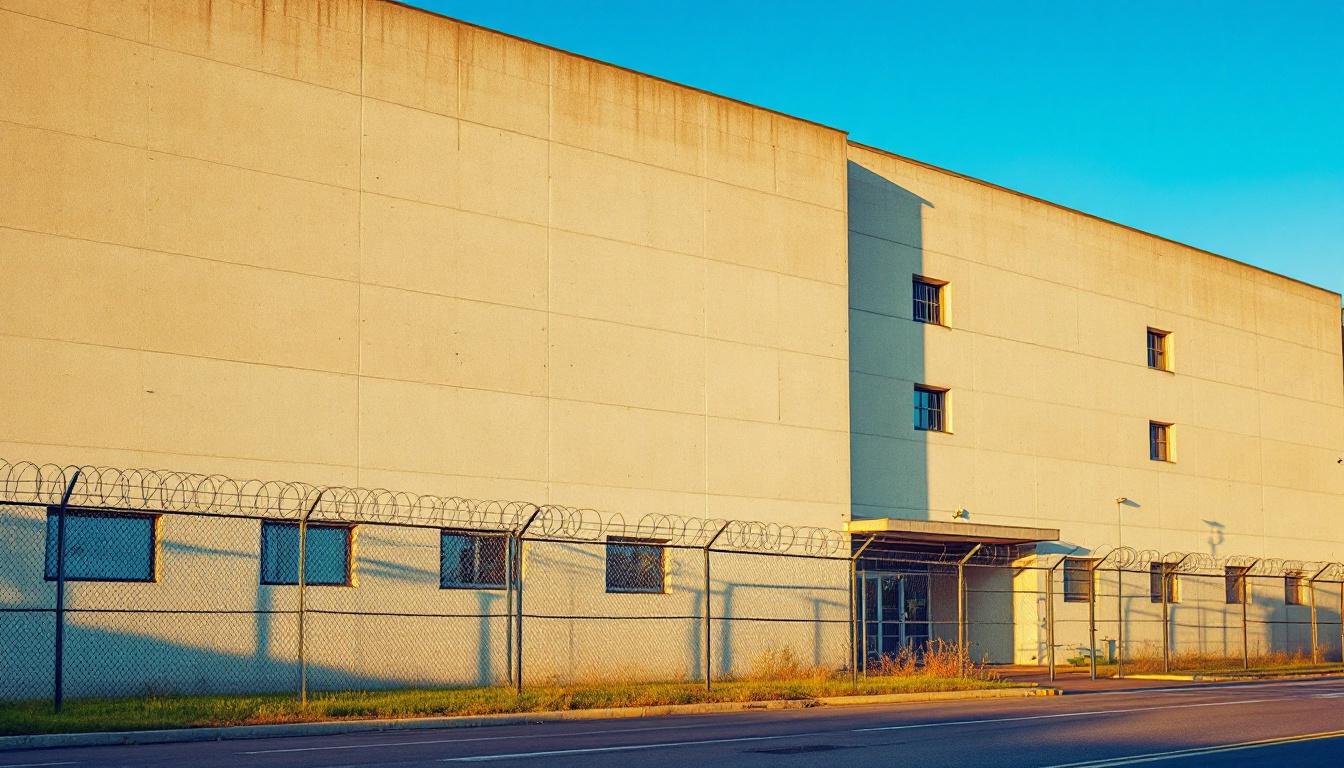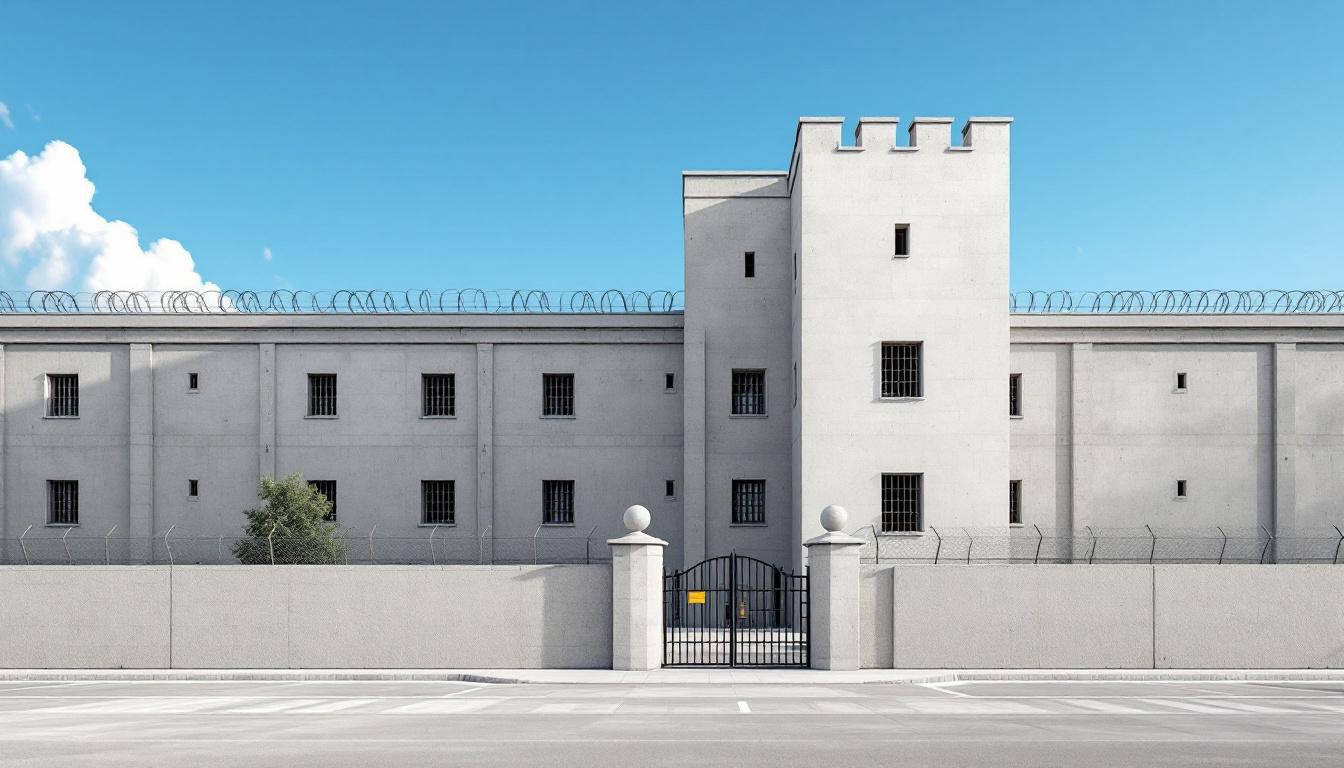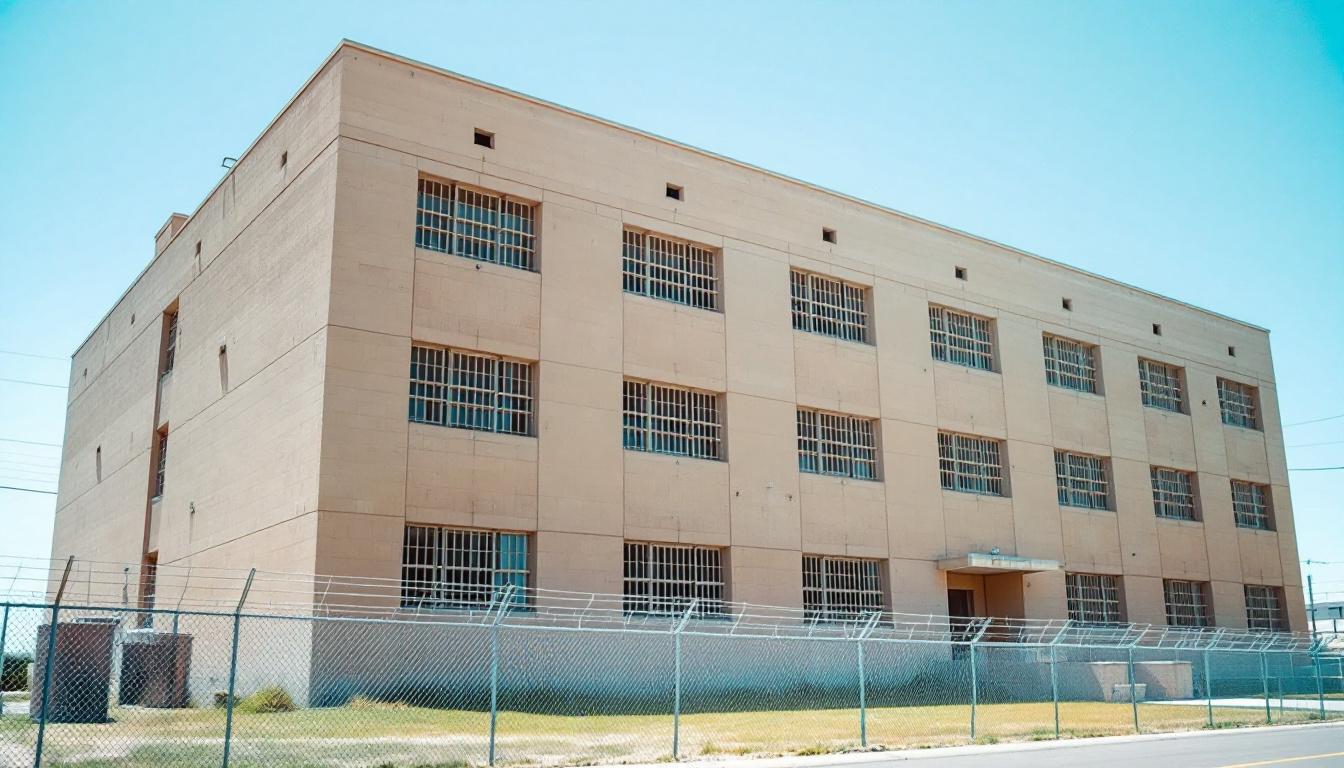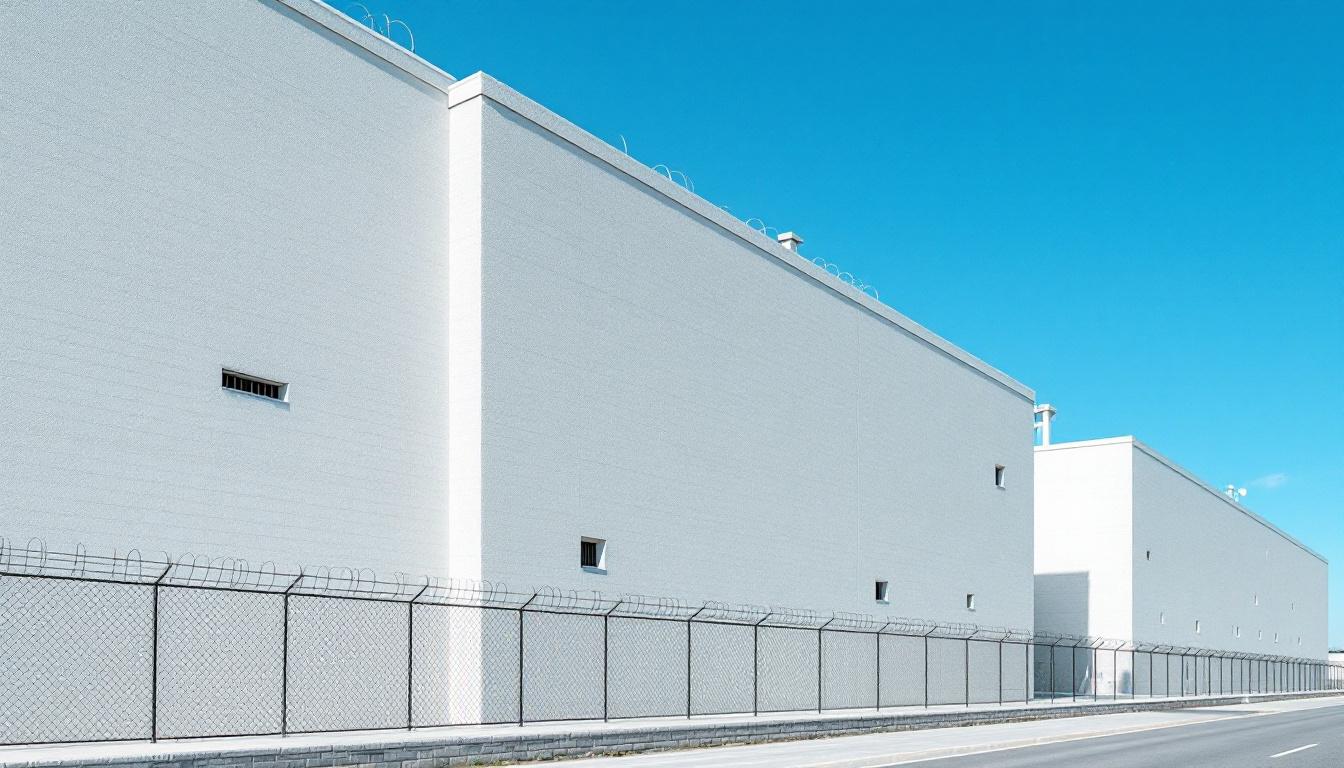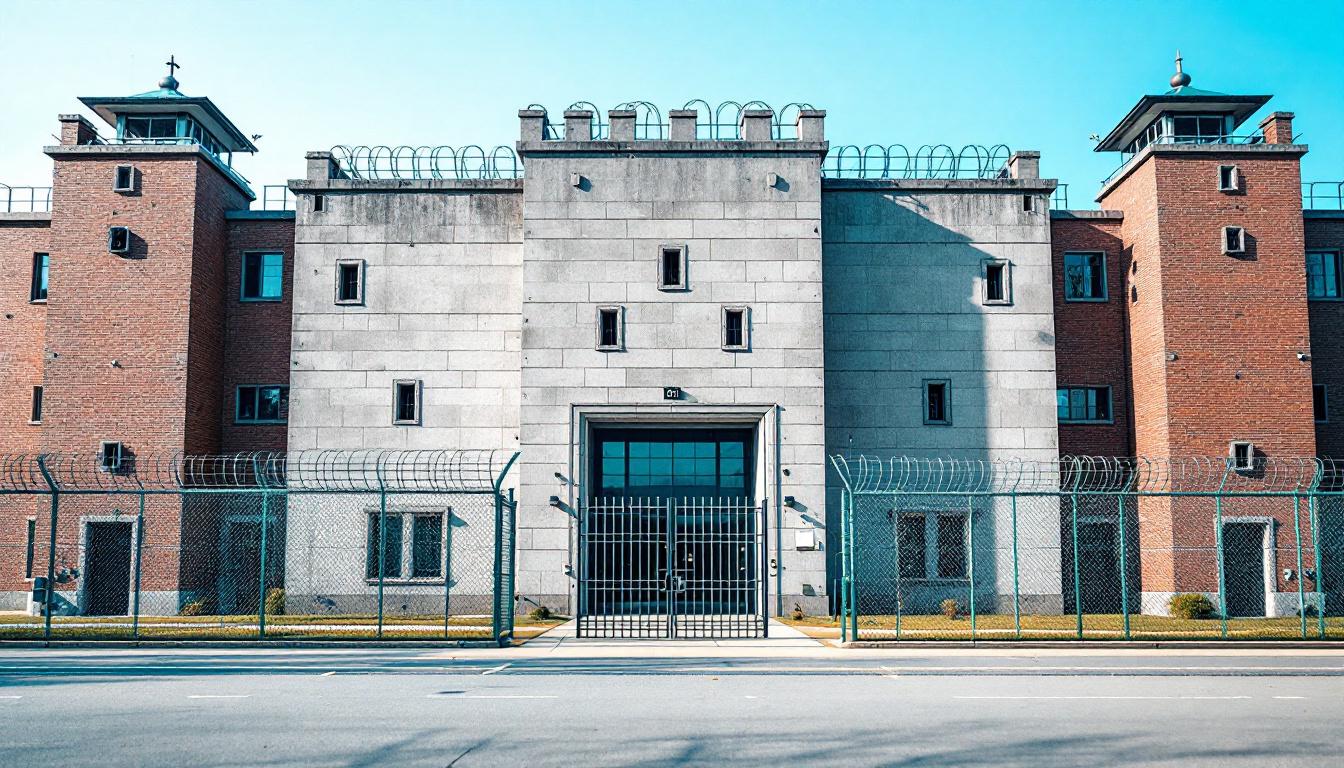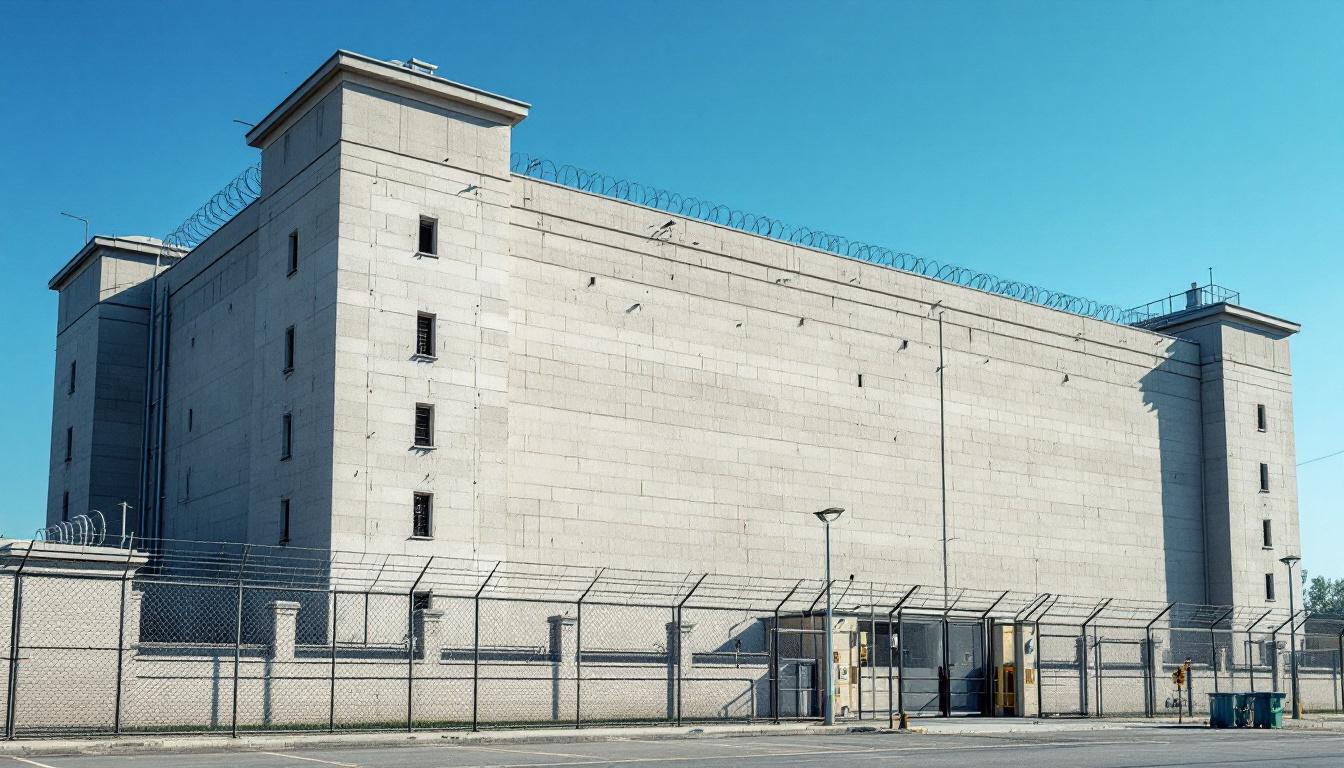
Quick Navigation
How to contact an inmate at Lycoming County Prison
This comprehensive guide will walk you through how to connect with an inmate at Lycoming County Prison. Follow the steps below to find an inmate and send letters and photos:
- Search for the inmate using our search tool below
- Create your account or log in to Penmate
- Write your message (up to 6,000 characters)
- Send instantly - inmates receive printed copies daily
Find an Inmate
Search for an inmate to start communicating today
Tip: You can search by first name, last name, or inmate ID number
To contact a person at Lycoming County Prison start by searching for the person on the official facility website. Perform a search by following these steps:
- Step 1: Enter their first name and last name into the search form and click "Search"
- Step 2: Locate their inmate record
- Step 3: Write down their Inmate ID and any housing information provided
Important! Be sure to enter the person's full name. Nicknames should not be used.
How to Send Messages to Inmates

You can use your phone or computer to send emails, letters, and photos to an inmate. Messages are sent electronically to inmate tablets or kiosks at the facility. If you would like to send a message, start by searching for an inmate at Lycoming County Prison.
Sending Photos and Postcards

A great way to send love and support to a loved one at Lycoming County Prison is to send photos and postcards. It only takes a few minutes to send photos from your phone and it makes a huge difference. You can also mail postcards with words of support and inspiration, or design your own postcard for special moments like birthdays and holidays.
Important! Be sure not to send any explicit photos or they may not be approved by the facility. You can also use a photo printing app like Penmate to make sure your photos are printed at the correct size (4x6 or 3x5) and are mailed according to the rules and regulations of Lycoming County Prison.
Frequently asked questions about Lycoming County Prison
-
How long does it take to deliver a message?
If you're sending an email message your letter is usually delivered within 24-48 hours. For messages sent via mail you should expect delivery within 3-7 days. All messages will need be approved by Lycoming County Prison.
-
How much does it cost to send a message to Lycoming County Prison?
You can send a message free using your phone or mail a message via USPS for the price of a $0.60 stamp and envelope. You can also purchase credits or e-stamps from services starting at $1.99.
-
What services can I use to contact an inmate at Lycoming County Prison?
Penmate
You can use Penmate to send letters and photos to an inmate from your phone. It's an easy way to stay in touch during your loved one's incarceration. Use the inmate locator to find an inmate's location and contact information, then you can send messages within a few minutes.
Securus messaging
Securus may be another option for communicating with an inmate at Lycoming County Prison. You can create a friends and family account and purchase credits to send messages. All messages will be reviewed and must be approved by the facility.
JPay
Some county jails and state prisons may support sending messages with JPay. You must register an account with the system, find your loved one, and purchase stamps to send messages. For some locations you can also attach photos.
Smart Jail Mail
You may also check if Smart Jail Mail is available at Lycoming County Prison. Smart Jail Mail is operated by Smart Communications and has contracted with some state and county jails. After purchasing credits, your messages and photos are sent to the facility, printed out, and then handed out to your loved one.
-
What is the mailing address of Lycoming County Prison?
Mailing address:
Lycoming County Prison
277 W 3rd St
Williamsport, PA 17701
Phone: (570) 326-4623 -
What are the visiting hours at Lycoming County Prison?
Visiting hours at Lycoming County Prison vary by housing unit and security level. Generally, visits are scheduled on weekends and holidays, with some facilities offering weekday visits. Contact the facility directly at (570) 326-4623 or check their website for the current visiting schedule. Visits typically last 30-60 minutes and must be scheduled in advance.
-
What items are prohibited when sending mail to Lycoming County Prison?
Prohibited items typically include: cash, personal checks, stamps, stickers, glitter, glue, tape, staples, paperclips, polaroid photos, musical or blank greeting cards, hardcover books, magazines with staples, and any items containing metal or electronics. Only send letters on plain white paper with blue or black ink. Photos must be printed on regular photo paper (no Polaroids). Always check with Lycoming County Prison for their specific mail policies.
-
How do I send money to an inmate at Lycoming County Prison?
You can send money to an inmate at Lycoming County Prison through several methods: 1) Online using JPay, Access Corrections, or the facility's approved vendor, 2) Money orders mailed directly to the facility with the inmate's name and ID number, 3) Kiosks located in the facility lobby, or 4) Over the phone using a credit or debit card. Fees vary by method, typically ranging from $2.95 to $11.95 per transaction.
-
Can I schedule a video visit with an inmate at Lycoming County Prison?
Many facilities now offer video visitation as an alternative to in-person visits. At Lycoming County Prison, video visits may be available through services like Penmate, Securus Video Connect, GTL, or ICSolutions. Video visits typically cost $10-20 for 20-30 minutes and must be scheduled in advance. You'll need a computer or smartphone with a camera and reliable internet connection. Contact the facility for their specific video visitation policies and approved vendors.
-
What identification do I need to visit an inmate at Lycoming County Prison?
All visitors must present valid government-issued photo identification such as a driver's license, state ID, passport, or military ID. Minors must be accompanied by a parent or legal guardian who can provide the minor's birth certificate. Some facilities require visitors to be on the inmate's approved visitation list, which may require a background check. Contact Lycoming County Prison for specific ID requirements and visitor approval procedures.
-
How can I find out an inmate's release date?
To find an inmate's release date at Lycoming County Prison, you can: 1) Use the online inmate search tool if available, 2) Call the facility's records department, 3) Contact the inmate's case manager or counselor, or 4) Have the inmate provide this information during a call or visit. For privacy reasons, some facilities only release this information to immediate family members.
Facility Overview
Contact Information
Lycoming County Prison277 W 3rd St
Williamsport, PA 17701
Phone: (570) 326-4623
Official Website
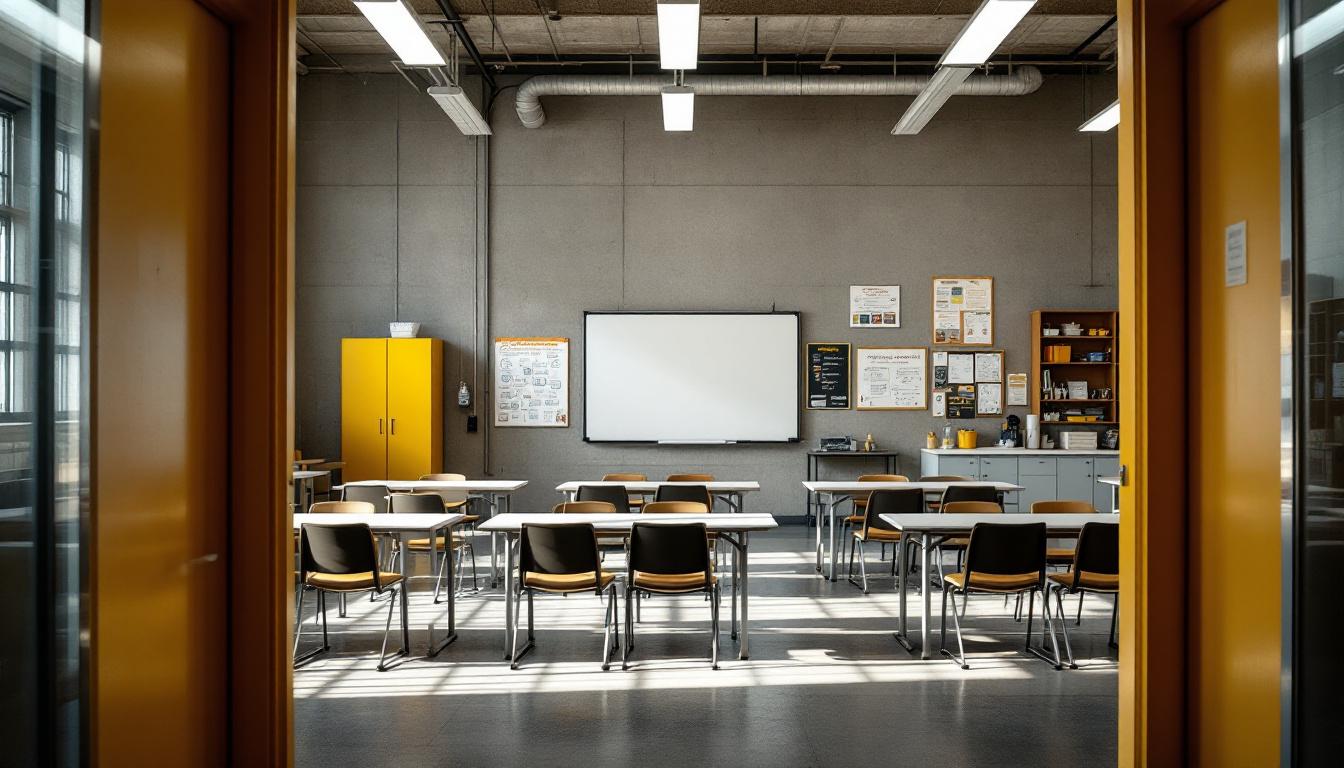
About Lycoming County Prison
County-level correctional facilities across Pennsylvania's mid-Atlantic region typically serve as crucial bridges between arrest and either release or transfer to state facilities, with Lycoming County Prison fulfilling this essential role for residents throughout the Phoenix area and surrounding communities. This PA correctional facility operates within Pennsylvania's broader correctional framework, where county institutions generally focus on pre-trial detention and shorter-term sentences while maintaining strong connections to local court systems and community resources. The facility's location in Phoenix positions it strategically within Lycoming County's justice infrastructure, allowing for efficient coordination with local law enforcement, legal proceedings, and family visitation from across the region.
Programs and services at county-level facilities often emphasize immediate needs and preparation for legal proceedings, with Lycoming County Prison typically offering educational opportunities, substance abuse counseling, and work programs designed to maintain stability during incarceration periods. The population services may include medical care, mental health support, and chaplaincy programs that address both immediate welfare and longer-term reintegration goals. Given the facility's role in serving the Phoenix area, programming often incorporates elements that help maintain family connections and community ties, recognizing that many individuals housed there will eventually return to local neighborhoods and may benefit from continued access to regional support networks and employment opportunities.
Programs & Services
Through comprehensive therapeutic communities and structured educational initiatives, Lycoming County Prison cultivates an environment where the population can develop essential life skills while addressing underlying challenges that may have contributed to their incarceration. The facility's approach emphasizes holistic support, recognizing that successful reintegration requires addressing both practical competencies and personal growth. These carefully designed programs typically foster a sense of community among participants while building bridges to future opportunities beyond the facility walls.
Educational and vocational programs serve as cornerstones of the facility's rehabilitative framework, offering the population pathways to economic stability upon release. Vocational education initiatives may supply hands-on training in trades that align with local employment markets, while traditional education programs often include opportunities to complete high school equivalency requirements or pursue post-secondary coursework. Additionally, specialized training in barbering and cosmetology provides participants with marketable skills that can translate directly into entrepreneurial ventures or employment within established businesses, creating tangible connections between incarceration and future self-sufficiency.
The facility's therapeutic communities typically emphasize peer support and collaborative problem-solving, creating structured environments where the population can practice healthy relationship dynamics and conflict resolution strategies. These programs often include group counseling sessions and individual therapeutic interventions designed to address substance abuse, anger management, and other behavioral concerns. Agriculture programs may supply additional therapeutic benefits through outdoor work opportunities that promote physical wellness while teaching valuable skills in food production and land management, fostering both personal responsibility and connection to sustainable practices that benefit the broader community.
Daily Life & Visitation
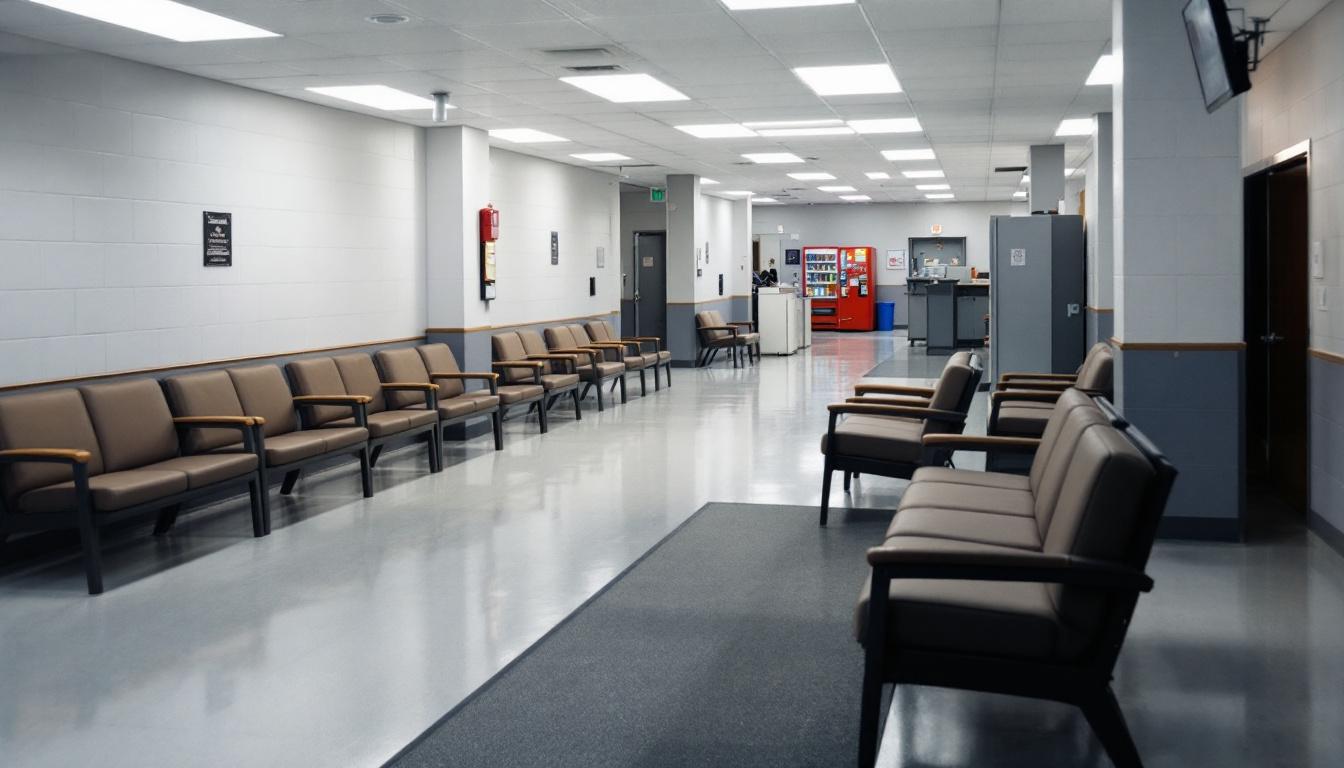
The systematic organization of daily operations creates a predictable framework that governs every aspect of life within the facility's walls. The population now follows carefully structured schedules that begin with early morning counts and extend through evening lockdown procedures, with each segment of the day serving specific purposes in maintaining order and providing opportunities for rehabilitation. Staff regularly conduct security checks and coordinate movements between different areas of the facility, ensuring that the population can safely participate in various programs and activities throughout their scheduled routines.
Housing arrangements typically place residents in dormitory-style units or smaller cells, depending on classification levels and available space within the facility. The population generally shares common areas for dining, where meals are served at designated times in a cafeteria setting that accommodates multiple shifts of residents. Living spaces may include basic furnishings and limited personal storage, while commissary privileges allow individuals to purchase approved items that supply additional comfort and personal needs beyond what the facility provides.
Additionally, structured programming schedules supply the population with opportunities for education, vocational training, and recreational activities that may include indoor and outdoor exercise periods, library access, and various skill-building workshops. While security protocols govern all interactions, visitation arrangements typically allow family members and approved contacts to maintain connections through scheduled visits and phone calls. Work assignments within the facility often include kitchen duties, maintenance tasks, and administrative support roles that help residents develop job skills while contributing to daily operations, creating a sense of purpose and routine that extends beyond basic confinement.
Ready to Connect?
Start communicating with your loved one today
Search for an Inmate
